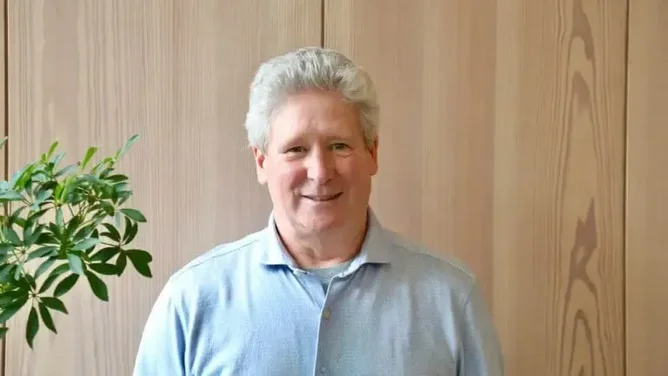An article by BMRA's Sustainability Hub partner, Vattenfall
Vattenfall says IDNOs can help the recycling industry combat energy cost and capacity issues
Independent Distribution Network Operators (IDNOs) are transforming energy in the recycling industry with flexible, cost-efficient solutions, says Vattenfall.
Recycling is something individuals and businesses alike are encouraged to do, but its sustainability credentials are not as straightforward as it may seem.
While recycling offers significant environmental benefits like resource conservation and reduced waste, its sustainability depends on various factors.
Swedish state-owned multinational power company Vattenfall says the recycling industry is facing unprecedented challenges in energy consumption and grid connectivity.
It emphasises that power-hungry operations, rising costs and a slow-moving grid are making it increasingly difficult for expansion and meeting sustainability commitments.
However, it is worth noting that although recycling has its downsides when it comes to energy consumption, it often saves energy because it bypasses the energy-intensive processes of extracting and processing raw materials.
The International Energy Agency (IEA) says recycling plays a critical role in securing and sustaining the supply of energy transition minerals, highlighting that scaling up recycling can reduce the need for new mining by 25-40% by mid-century.
“Recycling is indispensable to the security and sustainability of critical minerals supply for clean energy transitions,” it says in its Recycling of Critical Minerals report.
“While recycling does not eliminate the need for mining investment, it creates a valuable secondary supply source that reduces reliance on new mines and enhances supply security for countries importing minerals.
“Moreover, scaling up recycling mitigates the environmental and social impacts related to mining and refining while preventing waste from end-use technologies ending up in landfills.”
Recycling’s energy crisis
Vattenfall highlights that National Grid’s capacity crunch has become a national issue, with “developers across industries facing waits of up to 10 years for new connections”.
Alongside grid constraints, the recycling industry is also grappling with the rising cost of energy.
As global energy prices continue to fluctuate, recycling companies are seeing their operational expenses soar, putting pressure on already tight profit margins.
This financial strain is forcing many businesses to choose between investing in expansion and maintaining current operations.
A solution to energy challenges in recycling
So what can be done to combat these challenges?
Independent Distribution Network Operators offer tailored solutions that could revolutionise how the recycling industry accesses and manages its power supply.
IDNOs provide more flexible and customised power connections compared to traditional Distribution Network Operators (DNOs).
This adaptability is crucial for recycling facilities, which often operate in constrained spaces and have unique power requirements.
Vattenfall says IDNOs can design bespoke network solutions that fit the specific needs of each recycling operation, potentially reducing wait times for connections and allowing for more efficient use of available space.
“Supporting companies in their journey towards net zero while ensuring they have the essential network infrastructure they need is a key part of what we do,” says Stewart Dawson, Managing Director at Vattenfall IDNO.

Stewart Dawson, Managing Director at Vattenfall IDNO
“The flexibility and cost benefits we provide are making a tangible difference.”
One major advantage of IDNOs is their ability to fund and own the electrical infrastructure required for new connections.
This reduces the upfront capital costs for businesses and allows them to focus resources elsewhere — whether on expanding operations, investing in renewables, or improving efficiency.
Additionally, IDNOs offer greater agility in designing grid solutions that work around space constraints, which is particularly crucial in the demolition and recycling sectors, where open land is often limited.
Weighing up the benefits
As well as securing a future for sustainable operations, IDNOs provide another attractive benefit — reduced upfront costs.
Many IDNOs offer to fund and own the electrical infrastructure required for new connections, allowing recycling companies to allocate their capital to other critical areas such as expanding operations or investing in more energy-efficient equipment.
“Additionally, IDNOs offer greater agility in designing grid solutions that work around space constraints, which is particularly crucial in the demolition and recycling sectors, where open land is often limited”, Vattenfall says.
“Energy costs are squeezing margins, regulatory pressures are mounting, and the grid isn’t always keeping up with demand. IDNOs provide a viable way forward — not just as an alternative to DNOs but as strategic partners that can unlock new efficiencies, lower costs and enable long-term growth.”
David Hobson, Capital Projects Manager at S. Norton — a leading UK metal recycler and BMRA member— adds: “Most of the challenges we face at the outset of any project to secure or increase our electricity supply relate to assessing what power is available and then balancing our current and future needs against the capital costs of installation and availability charges.
“If an IDNO could improve our ability to assess the availability and costs associated with any power upgrades, this would be beneficial.”
With decarbonisation goals still being worked toward — in the UK and worldwide — innovative energy solutions allow businesses to best position themselves to prosper in a world that is increasingly electrified, focused on sustainability and cost-conscious.
